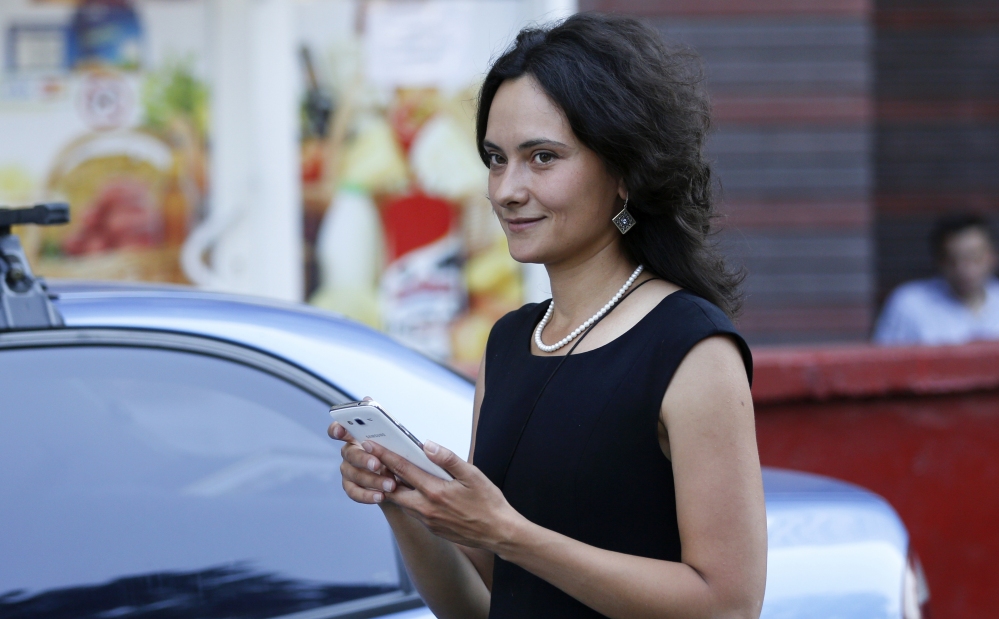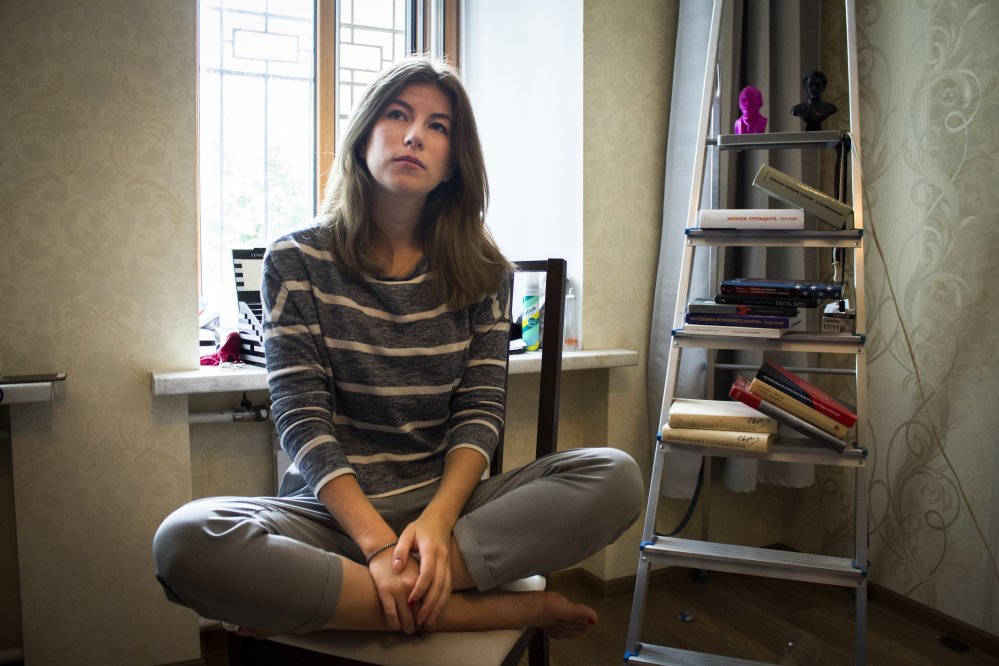MOSCOW — Women across Russia and Ukraine are uniting and speaking out – for once, not about the tensions between their two nations, nor the Russia-backed separatists fighting in eastern Ukraine – but about their experiences of rape and sexual violence.
Victoria Ivleva was just 20 years old when she was raped by a stranger just steps from her Moscow apartment building. Polina Nemirovskaya was still a teenager when a family friend four decades her senior got her drunk and pressured her into sex. When Ekaterina Romanovskaya rejected a man’s drunken advances she was stabbed nine times in the neck and abdomen and barely survived.
Hundreds of personal stories of sexual violence and harassment are appearing on social media in Russia and Ukraine, after a post by Ukrainian journalist Nastya Melnychenko became an internet sensation. Under the hashtag (hash)IAmNotAfraidToSpeak in Ukrainian and Russian, hundreds of women have taken to Facebook to share their stories.
In a region where any discussion of sexual and domestic violence is often taboo, the widespread reaction triggered by the Melnychenko posting has taken society by surprise. Usually victims fear the repercussions of opening up about an attack, scared they will be blamed or judged by public opinion, the police and even their families. In small communities this is especially problematic. The sudden willingness of Russian and Ukrainian women to speak out has paved the way for public discussion about how to counter or eliminate sexual harassment.
‘THE FAULT OF SOCIETY’
Maria Mokhova, director of the Sisters Center, an independent Russian initiative helping survivors of sexual violence, said the internet movement is the first of its kind and carries an important message.
“It’s important because it shows survivors that it (sexual violence) is the fault of society, not of themselves,” she said. “Abuse is kept a secret in Russia because it is regarded as shameful. People don’t believe you and they don’t believe that what happened to you is traumatic.”
It was this attitude that led Melnychenko to break her silence. After reading yet another post blaming rape victims for what happened to them, she detailed the sexual abuse that started when she was 6 years old and continued into adulthood.
Melnychenko believes the digital movement she ignited has the potential to bring about real change.
“What is really important is that this post started a public discussion of the issue,” she told The Associated Press in Kiev, the Ukrainian capital. “Our officials saw this powerful public request for change. … they realized that this really is a problem and that a solution has to be found.”
The movement quickly spread east, and soon Russian women, too, were posting about violence.
“In all post-Soviet countries, there is a ‘culture of violence’ toward women,” Melnychenko said. “This means that all women from countries with Soviet heritage have something to say.”
UNITY AFTER TENSIONS
Nemirovskaya, a 20-year-old human rights activist from Moscow, was struck by how this has united Russian and Ukrainian users of Facebook after two years of tensions over the war between the Ukrainian government and Russia-backed separatists in eastern Ukraine.
Nemirovskaya was one of the many Russian women to speak out about her experience, which occurred three years ago when she was harassed by a family friend. She said her purpose was to show “that even a woman who tries to be strong and tries not to think of herself as a victim has gone through this.”
Many of the women said the experience of speaking out and facing their past traumas without shame was cathartic.
For Romanovskaya, it was a step toward understanding the problem.
“Once you’ve said it, you understand that there is a problem and you need to find a solution. As long as you keep silent, you can’t do anything,” she said.
In 2000, Romanovskaya nearly died when she was repeatedly stabbed after trying to ignore the advances of a drunken stranger in the center of Moscow. Now based in New York, she has developed a smart ring called “Nimb,” which serves as a panic button for someone in trouble.
“It was just something I wanted to share, to show people in a similar situation that life goes on, and that you can be really happy, you can be successful, you can achieve a lot, you can overcome all these circumstances,” Romanovskaya said.
Ivleva, an award-winning Russian photographer, said communicating with other victims of sexual trauma can be constructive and reassuring.
“You talk to somebody and you feel that you’re not alone in the world,” she said.
Send questions/comments to the editors.




Success. Please wait for the page to reload. If the page does not reload within 5 seconds, please refresh the page.
Enter your email and password to access comments.
Hi, to comment on stories you must . This profile is in addition to your subscription and website login.
Already have a commenting profile? .
Invalid username/password.
Please check your email to confirm and complete your registration.
Only subscribers are eligible to post comments. Please subscribe or login first for digital access. Here’s why.
Use the form below to reset your password. When you've submitted your account email, we will send an email with a reset code.